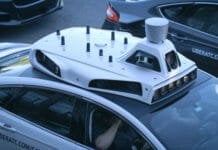After a pub conversation the other night where various parties were espousing their views on the web and its democratic nature I argued that the web isn’t democratic at all, that in fact it’s meritocratic. This seemed to hold up for about a minute before realising it’s actually neither, rather somewhere between the two. In fact its characteristics are more than that and unique enough to require a name, albeit one you might get punched for using – webocracy…
I’ve pulled out the definition for democracy and meritocracy. Both words, like almost all words, have several definitions listed but here they are with the appropriate definition for the usage we’re discussing:
de⋅moc⋅ra⋅cy
[di-mok-ruh-see]
the common people of a community as distinguished from any privileged class; the common people with respect to their political power.
mer⋅i⋅toc⋅ra⋅cy
[mer-i-tok-ruh-see]
a system in which such persons are rewarded and advanced: e.g. The dean believes the educational system should be a meritocracy.
(Thanks to dictionary.com for the definitions there)
So if we were to build a dictionary definition for the webocracy what would it look like? Let’s list the characteristics:
- The internet is a place where almost anyone in the world can create or curate, and then share content.
- Each morning when you look at the internet it has changed from what it was yesterday. This constant change is informed by its billions of nodes. Each node is a human in front of a computer, just as you are now. Hello node.
- Money can buy the creation, development and exposure of any content. This money can come from anywhere and need not have been generated through online activity, meaning a previously offline entity can immediately enter and penetrate the online market. Success, however the creator measures it, is not guaranteed.
- The content you create (ie personally author) or curate (ie find and gather together) is, if you wish, viewable by anyone with access to the internet, meaning that potentially your reach is the number of people in the world with internet access.
- You have almost complete freedom of speech on the internet, though within the mainstream (ie outside of the likes of Freenet and underground groups) there are widely adopted standards that do not permit subjects such as terrorism and paedophilia. In reality this degree of freedom is similar to that of a western country in the physical world.
- The internet is not significantly affected by Earth’s geography.
So in conclusion, the web is a level playing field where some people just rock up better equipped than others. Talent will often out but artificial help is a definite advantage. Here’s the dictionary definition, I’ll get on the phone to Oxford English Dictionary tomorrow as I expect to see this in their next edition:
web⋅oc⋅ra⋅cy
[web-ok-ruh-see]
the unique social system extant on the world wide web in which every user operates a terminal of potentially equal value, resulting in a broad and vast cultural environment driven by the open choice of consumers and publishers, two groups that the webocracy has rendered indistinguishable. The paths between consumer and publisher are now many million times more numerous than previously existed in non-digital media.
E.g. OMG, my video of the cat licking the mirror has got like forty thousand views on YouTube, that’s twice as many as that stupid Wrigleys ‘viral’. Webocracy FTW!
Want to learn new creative and marketing skills with me? Check out upcoming courses on topics like SEO, content marketing, copywriting and podcasting.
What's trending in digital marketing?
Stay on top of the latest news, tips, tools and updates in digital. Just for people in marketing and business. No fluff, no ads, no spam.
Join thousands of readers keeping abreast with it all, every Thursday.

















